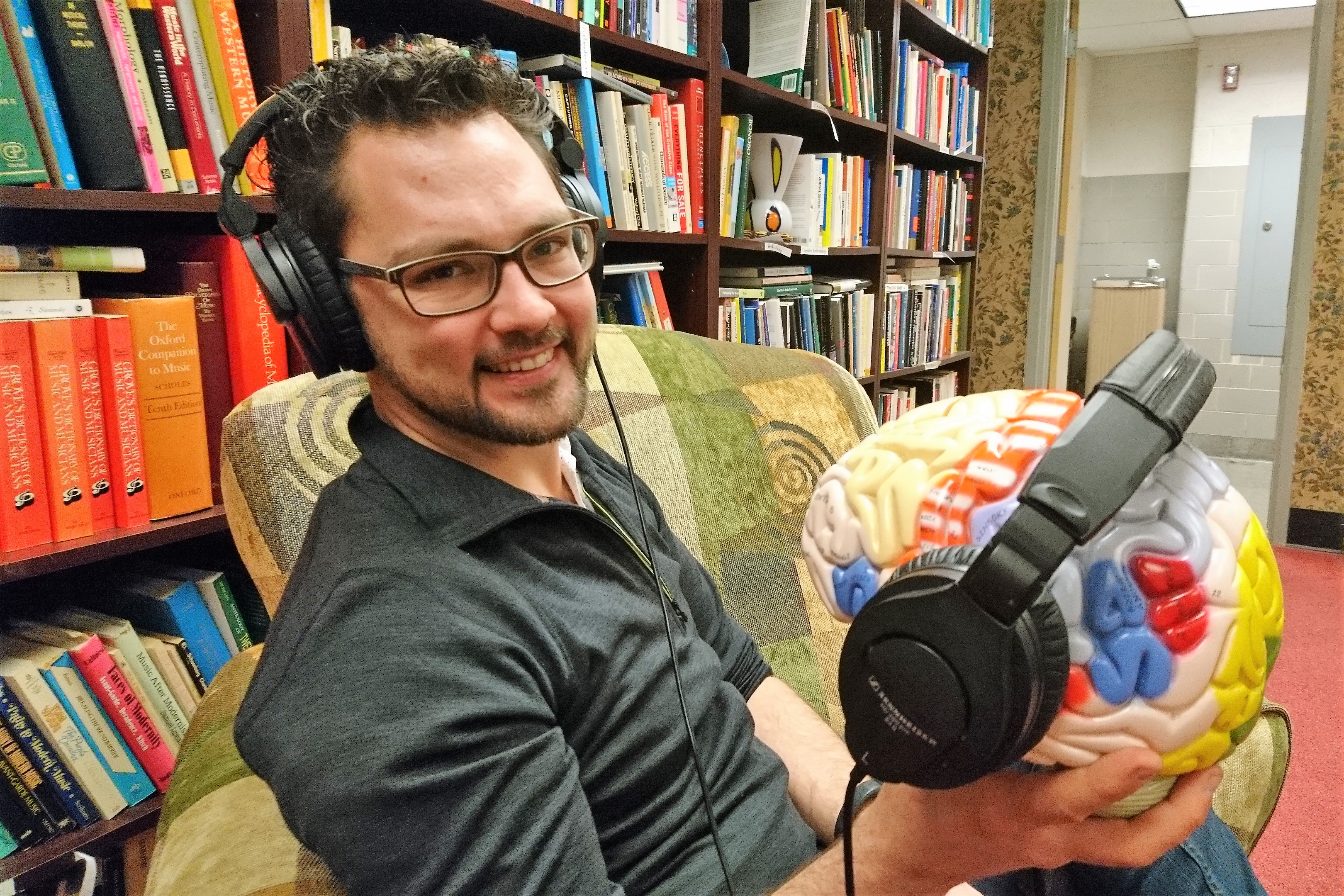The brain is a prediction machine – and music reveals how it works
Life is not only lived forwards – it is also experienced a little ahead of time, and now there is empirical evidence for the claim. AIAS Fellow Niels Chr. Hansen and collaborators have used music to understand the brain's expectation mechanisms. The study is published in Psychological Science.

Not much evidence exist for how our brains perceive and decide when ‘something' begins and ends as for instance a sentence, conversation or piece of music, but a research project now sheds new light on the role of the brain as a prediction machine.
This comes from a scientific study in which Assistant Professor and AIAS fellow Niels Chr. Hansen and collaborators document that research participants experience so-called musical phrases – which correspond to a sentence or ‘unit of meaning’ – as complete and concluded, just as a phrase ends with a tone that creates uncertainty about what is going to happen next. In this way, the brain can effectively save completed phrases in its memory so that it is ready again before a new phrase begins.
The brain is one step ahead and matches expectations
This is to say that the brain is constantly one step ahead and matches expectations to what is about to happen, and according to Niels Chr. Hansen, this challenges previous assumptions that musical phrases first feel finished once the next phrase has already begun. The theory has previously been that the musical 'units of meaning' are perceived looking backwards rather than forwards, as the new study shows.
"We only know a little about how the brain finds out where the boundaries are over time – i.e. when things start and end – and here music provides a perfectly delimited domain to measure something that is otherwise difficult to measure, namely uncertainty," Niels Chr. Hansen said. He is a fellow at the Aarhus Institute of Advanced Studies and is also affiliated with the Center for Music in the Brain at the Department of Clinical Medicine.
The entropy in Johann Sebastian Bach
Niels Christian Hansen and the international research team behind the study have used computer models to calculate the entropy, which is the overall disorder or unpredictability in a system, to estimate the uncertainty in the chorale melodies of the German composer Johann Sebastian Bach.
"We clearly see that people have a tendency to experience high-entropy tones as musical phrase endings – and this is basic research that makes us more aware of how the human brain acquires new knowledge – not just from music, but also when it comes to language, movements, or other things that take place over time," added Niels Chr. Hansen. On the long term, he hopes that the results can be used to optimise communication and interaction between people – or alternatively, as a tool to understand how artists are able to tease or trick audiences in e.g. film, theatre, music, dance, or literature.
The research findings are consistent with leading cognitive theories, which increasingly view the human brain as a prediction machine. However, according to the research group, this is the first time that empirical evidence has been presented to show that the brain's predictions form the basis for musical phrasing.
The research results – more information
- In the first experiment, 38 research participants were asked to listen to the chorale melodies by J. S. Bach note by note at their own pace which they determined by pressing the spacebar. Because they were told that they would be tested afterwards on how well they remembered the melodies, the researchers could use the dwell time for each tone as an indirect measure of the participants’ understanding of musical phrasing. In the second experiment, 31 different participants listened to the same melodies and then assessed how complete they sounded. Melodies that ended on high-entropy tones were assessed as more complete, and the participants also lingered for longer on these.
- Important collaborators on the study are Dr. Haley Kragness (University of Toronto Scarborough), Prof. Laurel Trainor (McMaster University), Professor Peter Vuust (Aarhus University), and Dr. Marcus Pearce (Queen Mary, University of London).
- The study is funded by the EU Horizon 2020 programme and Aarhus University Research Foundation.
- Link to the scientific study 'Predictive Uncertainty Underlies Auditory Boundary Perception' by Niels Chr. Hansen, Haley E. Kragness, Peter Vuust, Laurel Trainor, Marcus T. Pearce in: Psychological Science on which the media coverage is based can be found here.
Contact
Niels Chr. Hansen, Assistant professor, PhD, AIAS Fellow
Email: nchansen@aias.au.dk
Mobile: Tel.: (+45) 2533 8833
Aarhus Institute of Advanced Studies and
Department of Clinical Medicine – Center for Music in the Brain
Aarhus University
Denmark
